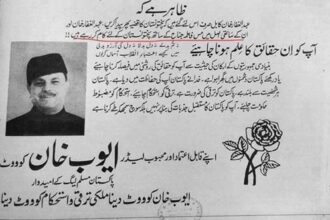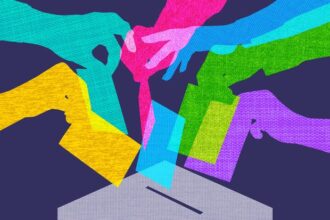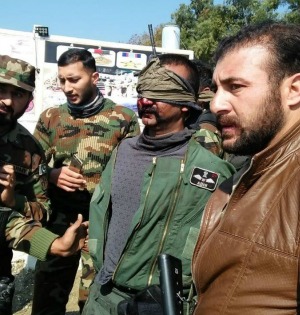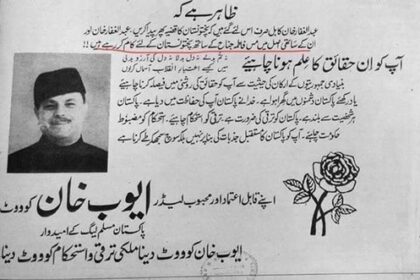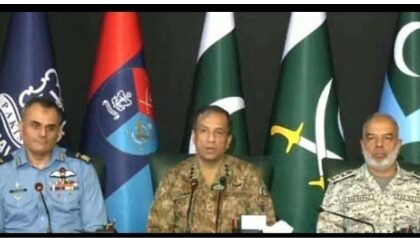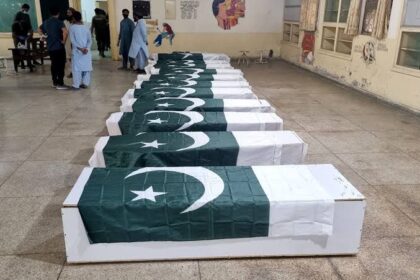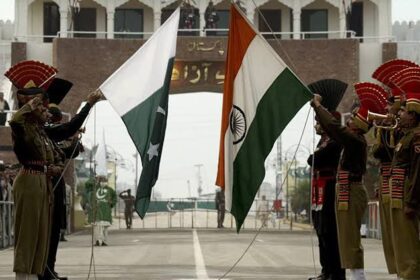Pakistan and India, ever since their inception, have been entangled in conflicts and disputes on multiple fronts. From territorial disputes over Kashmir to water distribution disagreements concerning the Indus River, there have always been deep-rooted tensions between the two neighbors. Both nations have repeatedly accused each other of funding and aiding anti-state militant groups in their territories, whether it be India linking Lashkar-e-Tayyaba in Kashmir to Pakistan or Pakistan raising concerns over Indian involvement in Baluchistan by linking them with the Baluchistan Liberation Army. Both countries have attained nuclear capabilities and have a history of taking hostile actions against each other, going to war multiple times. In such a climate of mutual distrust, where both sides remain skeptical of the other’s intentions, any hope for the resolution of these conflicts remains increasingly distant.
In such an environment, what exacerbates the situation is the politicians across both borders exploiting these disputes and highly sensitive relations to attract votes. They use the sentiments of the public by making statements that, for the time being, might provide political benefit to these wicked politicians, but in the longer run, leave a much worse impact on diplomacy and relations between both nations. Instead of fostering diplomacy and promoting better relations with the other side, they fuel nationalist sentiments by making statements that weaken the bilateral ties between these two diplomatically fragile neighbors.
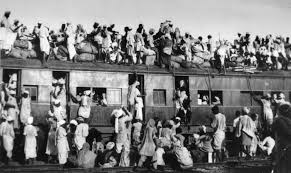
Indian Prime Minister Narendra Modi appeared on the renowned Lex Fridman podcast this month, where the host asked the leader of the world’s biggest democracy a plethora of questions on a wide range of topics covering Indian diplomatic ties with the USA, conflicts with China, and Modi’s relationship with newly elected President Trump. During the discussion, the host questioned Modi about his stance on the relationship with Pakistan and his approach towards the ongoing tensions between both countries.
Words, when spoken wisely, can build bridges, but the same words, when spoken recklessly, can burn those bridges too. Unfortunately, the Indian Prime Minister’s remarks regarding Pakistan during the podcast seem to adopt the latter approach.
In a classical rhetorical fashion, Modi accused Pakistan of being involved in a proxy war against his nation. He stated, “After getting their own way, we expected them to live and let live, and yet, they chose not to foster a harmonious coexistence. Time and again, they decided to be at odds with India. They have waged a proxy war against us.”
Modi tried portraying Pakistan as a sinister villain, scheming against world peace, while India is the victim here, caught in the storm. He tried to build a narrative that Pakistan is not just a regional threat but a global menace. He accused Pakistan of being a safe haven for terrorism. He further stated, “We are not the sole victims of this menace. Wherever terror strikes in the world, the trail somehow leads to Pakistan. Let’s take the September 11th attacks, for example. The main mastermind behind it, Osama bin Laden, where did he eventually emerge from? He had taken refuge in Pakistan.”
He also tried to showcase India as the bigger brother trying to guide the rebellious younger sibling toward the righteous path, as he went on to say, “Today, it stands as an epicenter of turmoil, not just for India but for the world. And we have repeatedly asked them, what good can come from this path? We have urged them to abandon the path of state-sponsored terrorism for good. What do you hope to gain by surrendering your nation to lawless forces?”
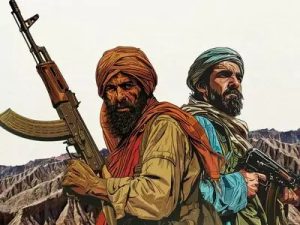
Modi’s statement was not a mature approach to diplomacy but rather a reiteration of the same retaliatory rhetoric that has historically been seen between the two nations. After the remarks by Prime Minister Modi, Pakistan’s Foreign Office also issued a statement in response. The Foreign Office claimed the remarks were “misleading and one-sided” and also made a counter-statement that India has been involved in terrorism in Pakistan.
The situation between both sides was already tense, as Pakistan earlier this month also accused India of being involved in the Jaffar Express incident in Baluchistan and of aiding the Baluchistan Liberation Army. In retaliation, the Indian side also responded by labeling these allegations as baseless and asking Pakistan to “look inwards.”
India has diplomatically always been ahead of Pakistan on the global stage. Historically, India has made multiple diplomatic efforts to improve relations. From Prime Minister Vajpayee’s visit to Lahore in 1999 through the Delhi-Lahore bus service in order to improve bilateral relations to Prime Minister Vajpayee attending the South Asian Association for Regional Cooperation (SAARC) summit in Islamabad in 2004. In later years, Modi invited Nawaz Sharif to his oath-taking ceremony in 2014 and in 2015 made a surprise visit to Pakistan for Sharif’s granddaughter’s wedding in Lahore. These events mark brief but notable diplomatic engagements.
Similarly, Pakistan also extended diplomatic ties over the years. For instance, President Musharraf’s visit to India to attend the 2001 Agra summit and, in recent times, opening the Kartarpur corridor for Sikh pilgrims are notable examples. Another gesture was made by Prime Minister Imran Khan when he released Indian Wing Commander Abhinandan in 2019 as a gesture of peace. Pakistan and India have also engaged in backdoor talks from time to time. Both countries have tried backdoor diplomacy in order to resolve the Kashmir issue. This was confirmed by Asad Durrani in his renowned work The Spy Chronicles.
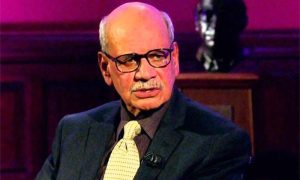
However, the dynamics have now shifted. In the current geopolitical environment, India seems to be hesitant, while Pakistan requires better relations with its neighbors, especially with India, in order to stabilize from the recent economic setbacks. Furthermore, Pakistan also doesn’t hold the same strategic position it once did on the global stage as a close ally of the U.S. during operations in Afghanistan. With India now being the preferred regional partner of the U.S., Pakistan may find itself in a position to make compromises to foster better bilateral relations with India.
The situation is tense due to recent escalations like the Pulwama attack of 2019, various clashes on the LoC through the years, and the recent Jaffar Express incident, which has also widened the differences. This trend of back-and-forth statements only deepens hostility and pushes both nations away from each other diplomatically. Instead of having meaningful and fostering dialogue, the leaders of both nations tend to promote enmity and fuel nationalist sentiment against the other side. Such statements, whether by the military command or the political leaders, are only exacerbating the situation, worsening the already fragile diplomatic relations between the two nuclear countries.
Given the history of both states, irresponsible and reckless statements like these can escalate tensions dangerously. At a time when tensions remain high due to historical disputes and cross-border conflicts, if the leaders continue using rhetoric as a political tool, then the diplomatic ties will only suffer, making the resolution of the disputes between these two nations impossible. Constructive diplomacy, rather than retaliatory rhetoric, is the only way toward stability and peace. Hence, politicians should hesitate to give such statements in such a hostile environment and try to follow the steps once taken by former leaders like Pervez Musharraf and Atal Bihari Vajpayee to foster relations.

